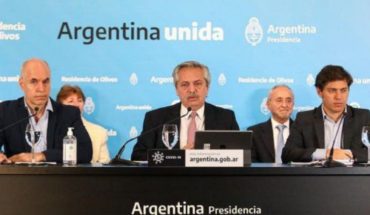The Minister of Finance, Mario Marcel, referred to the good moment that his person is going through, this after being the minister best evaluated in the last CEP survey. In addition, to assess the labor reduction projects and the tax reform.
Marcel highlighted these points in the middle of the Keynote Talk of the inauguration of the MBA academic year 2022 of the Faculty of Administration and Business of the University of Santiago.
You may also be interested in:
Addressing his good evaluation, the head of tax money told La Tercera that “it is always good to have a positive evaluation of people. I think maybe something that has helped me, is that for many years I have been working on issues of trust in institutions. One of the lessons of that work is that it is very important to take the time to explain the things that are being done… There was a time in Chile when an authority could say we weighed the background and made this decision. In today’s society that is not acceptable. You have to give yourself time to explain in language accessible to people, that’s always welcome, and much more important than popularity is that it helps people understand what the state is doing.”
Tax reform and 40-hour workday
Marcel in his speech explained the advantages that the tax reform will bring to our economy, a project that will be entered at the end of this month in Congress.
“Tax reform is the first thing that will help us boost the economy is by reducing uncertainty. We have had a long period, let’s say practically 3 years in which the perception of the country has changed, important political changes have been triggered, not only at the level of government, of the elected authorities, but also with respect to the constitutional process. The greatest damage that tax reforms do to investment is when they are not known, when they are an abstract concept and can affect anyone. When you know that uncertainty is reduced,” he said.
He also spoke about the details of the initiative that seeks to reduce the working day to 40 hours a week, specifying that it will be carried out gradually as happened in the government of former President Ricardo Lagos.
“It is important to be clear that the reduction of the working day to 40 hours will not happen suddenly, nor immediately, but will act in a deferred and gradual manner. In this we already had the experience in 2005. The project of the reduction of working hours will also have these characteristics, it does not mean that the day after the law is approved, the working day will be reduced. Companies have to have the capacity to adapt. The legislation will have to have the breadth to be consistent with the different modalities of work,” Marcel said.
Plan Chile Apoya and Mepco
The Minister of Finance also had words for the projects that the Executive has promoted and are already being implemented, such as the Chile Apoya plan or the injection of greater resources to the Mepco.
On the first, Marcel said that “the Chile Apoya plan includes 23 measures to support job creation, lagging sectors and support for families. In May we had the agreement with the CUT and SMEs for the readjustment of minimum income, with which we would reach 400 thousand per month. The subsidy of the basic basket was created and a subsidy was given to SMEs, to face the increase in the minimum wage.”
As for mepco, he said that “the government has been promoting a moderation in the price of fuels. Resources were injected to maintain the price of paraffin throughout the winter. There is a project in the pipeline to protect electricity tariffs and the price of regulated public transport has been frozen. Measures are being worked on to reduce the price of liquefied gas.”
Follow us on





